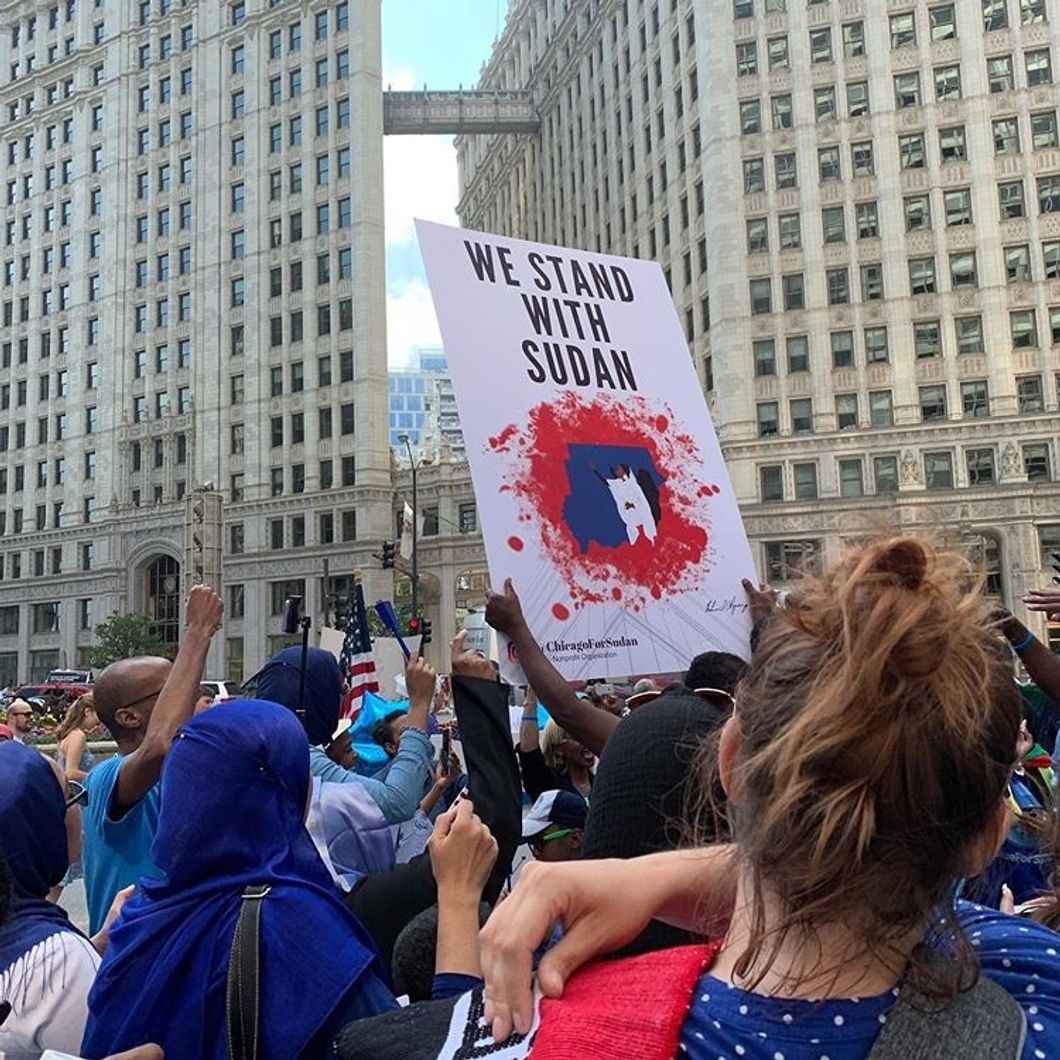With the current crisis in Sudan, mass terror inflicted upon the people with little to no coverage by major news stations until it started to be publicized on social media. Many may be confused about how this entire situation arose. The history of Sudan, as well as the current political climate and changes in leadership, can help explain this horrible phenomenon.
Sudan, a state located in the continent of Africa, has a history of contentious politics and political violence and has experienced some events in this area very recently. A number of racial and ethnic groups exist in the state, "There are 19 major ethnic groups and over 597 ethnic subgroups speaking more than 100 languages and dialects." The Sudanese population, ultimately, has "...a large cultural diversity…" composed of Arab speaking Muslims which are the majority at 70%, and Nubians, Copts, Beja, and other groups as the rest of the population. Sudan has a long history of division in ethnicity and religion, with the Northern and Southern halves of the state being dominated by polar opposite groups. According to a source pulled from the U.S. Library of Congress, "The language and culture of the north were based on Arabic and the Islamic faith, whereas the south had its own diverse, mostly non-Arabic languages and cultures." Essentially, the Northern part of Sudan was made up of Arabic Muslims, and the Southern part was made up other groups. This resulted in political tensions between the groups, as the Arabic Muslims held much of Sudan's political power. This led to a phenomenon of political competition among the Southern groups. Moreover, "The opportunities for power and wealth in the new politics and bureaucracy in southern Sudan were limited; some groups felt deprived of their shares by an ethnic group in power." Lastly, "...ethnic groups at one time or another competed for more traditional resources, contributing to a heritage of hostility toward one another." Something that should be noted about the political parties in Sudan is that in the north, "All the major Sudanese political parties… were affiliated with Islamic groups." But very recently something occurred which has shaken Sudanese politics. This April, several Sudanese political parties and movements, which have waged months of anti-government protests, ended "...al-Bashir's almost 30-year rule… and then… the interim military leader, Gen. Awad ibn Ouf, from his post."
In the state of Sudan, some problems with political violence have subsided in recent years, with the government looking to find peace agreements with the anti-government protesters. In the past, political violence has been rampant, "In the five years since the conflict broke out in South Sudan, more than four million people have fled their homes, and almost two million are displaced within the country," according to an article from the UN News. However, in September 2018, a deal was signed between the South Sudanese President Salva Kiir and Riek Machar, a former worker of his, in order to cease the conflict. Since then, "...political violence has "dropped dramatically." In April of 2019, political violence started up again, with anti-government protesters overthrowing the President of Sudan, as mentioned earlier. Street protests were among the tactics used, and they sought to gain political freedom from the oppressive policies of the state.
This April, just two months ago, the state of Sudan underwent a regime change. While the changing over of the governmental structure is still in process, some actions have been made. On April 11th, "... Sudanese Minister of Defense Awad Mohammed Ahmed Ibn Auf announced that President Omar al-Bashir had been removed from office and arrested after 30 years in power… the constitution will be suspended, a curfew imposed, and a three-month state of emergency instituted." While a transitional military council presides over Sudan, preparations will be made for elections to be held in two years.
All of this preceded the current crisis, with news still coming out about the death toll. Sudan's complicated political and cultural climate in the past few years, as well as its history of violence and conflict, has all combined in recent years, leading up to the current horrific events taking place. In order to understand the current crisis, history must be understood first.






 The minimum wage is not a living wage.
StableDiffusion
The minimum wage is not a living wage.
StableDiffusion
 influential nations
StableDiffusion
influential nations
StableDiffusion







